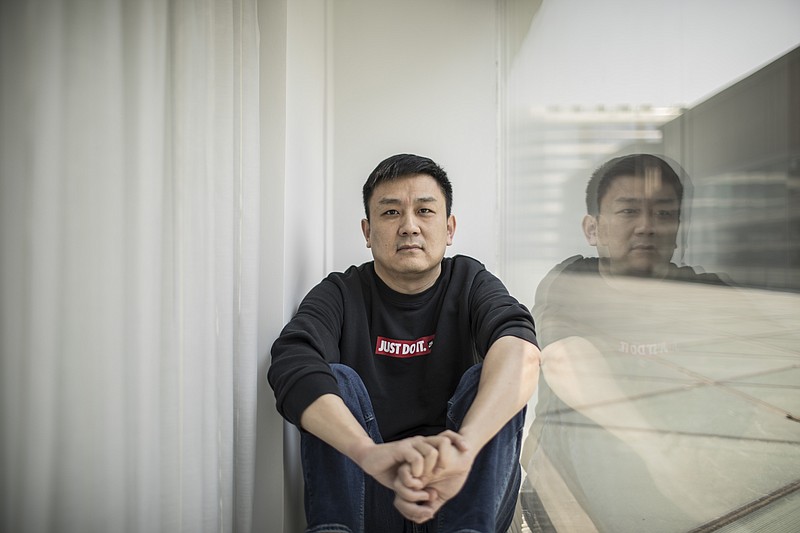BRUSSELS (AP) — Daniel Hsu, a U.S. citizen, fought for four years to escape China.
The Seattle resident was barred from leaving despite having committed no crime, a pawn in a geopolitical game between two giant superpowers.
Then earlier this month, just four days before a virtual meeting between President Joe Biden and Chinese leader Xi Jinping, Hsu was told to prepare to go home. He had less than 48 hours.
“It was a total rush,” he told the Associated Press in a telephone interview from his home in Seattle.
As he raced to visit his grandmother, pack his things and travel to Guangzhou, Hsu knew nothing of the horse-trading going on between China and the U.S. in the build-up to the three-plus-hour video meeting between Biden and Xi on Nov. 15.
Both countries appeared to be trying to dial back tensions in their increasingly fractious relationship, and Hsu had become a bargaining chip. He could return to Seattle, and seven Chinese nationals who were convicted of crimes in the U.S. would be sent back to China.
China’s ability to make deals by effectively taking people like Hsu hostage has raised concerns that Beijing may feel emboldened to double down on the practice, which has angered not only the U.S. but also Canada, Australia and a number of European countries who said their citizens have also faced arbitrary detention in China.
“There’s no deterrent imposed on Beijing to doing it again,” said Sophie Richardson, China Director at Human Rights Watch. “The problem is if you took the truly principled road, a lot of people would still be sitting in arbitrary detention in China.”
A U.S. official who was knowledgeable about the administration’s talks with Beijing regarding Hsu told AP that Hsu was not a “deliverable” for the Biden-Xi meeting and that what looked to some like a prisoner exchange was not actually a prisoner exchange, but rather the product of long — and continuing — efforts to get Beijing to live up to its international obligations. The official wasn’t authorized to comment publicly and spoke on the condition of anonymity.
“The PRC should never have subjected U.S. citizens to coercive exit bans. The PRC had been failing to meet its international obligations to take back their nationals who have been ordered removed,” the official said, using the acronym for the People’s Republic of China. “There are additional Americans subject to exit bans and arbitrary detentions in the PRC, and we will continue to work to secure their release.”
Hsu told the AP he was effectively held hostage by Chinese authorities seeking to convince his father to return to China and face justice for allegedly embezzling roughly $63,000 more than 20 years ago, when he was chairman of a government real estate company. Hsu’s father has said he is innocent and the target of a political vendetta.
From August 2017 until February 2018, Hsu was held in solitary confinement in Hefei, the capital of Anhui province. The walls in his beige room were covered in rubber, Hsu told the AP in a 2020 interview. The table was wrapped in soft, gray leather. White blinds covered two barred windows. There were no sharp edges.
Five surveillance cameras recorded his movements, and two guards kept constant, silent watch. They followed Hsu to the shower and stood beside him at the toilet.
Lights blazed through the night. If he rolled over on his mattress, guards woke him and made him turn his face toward a surveillance camera that recorded him as he slept.
When he was released from the so-called education center, he was subject to an exit ban and barred from leaving China. Under Chinese law, authorities have broad discretion to block Chinese citizens and foreign nationals from leaving the country. The U.S., Canada and Australia have repeatedly issued advisories warning their citizens they can be prevented from leaving China arbitrarily, even over disputes they may not be directly involved in.

